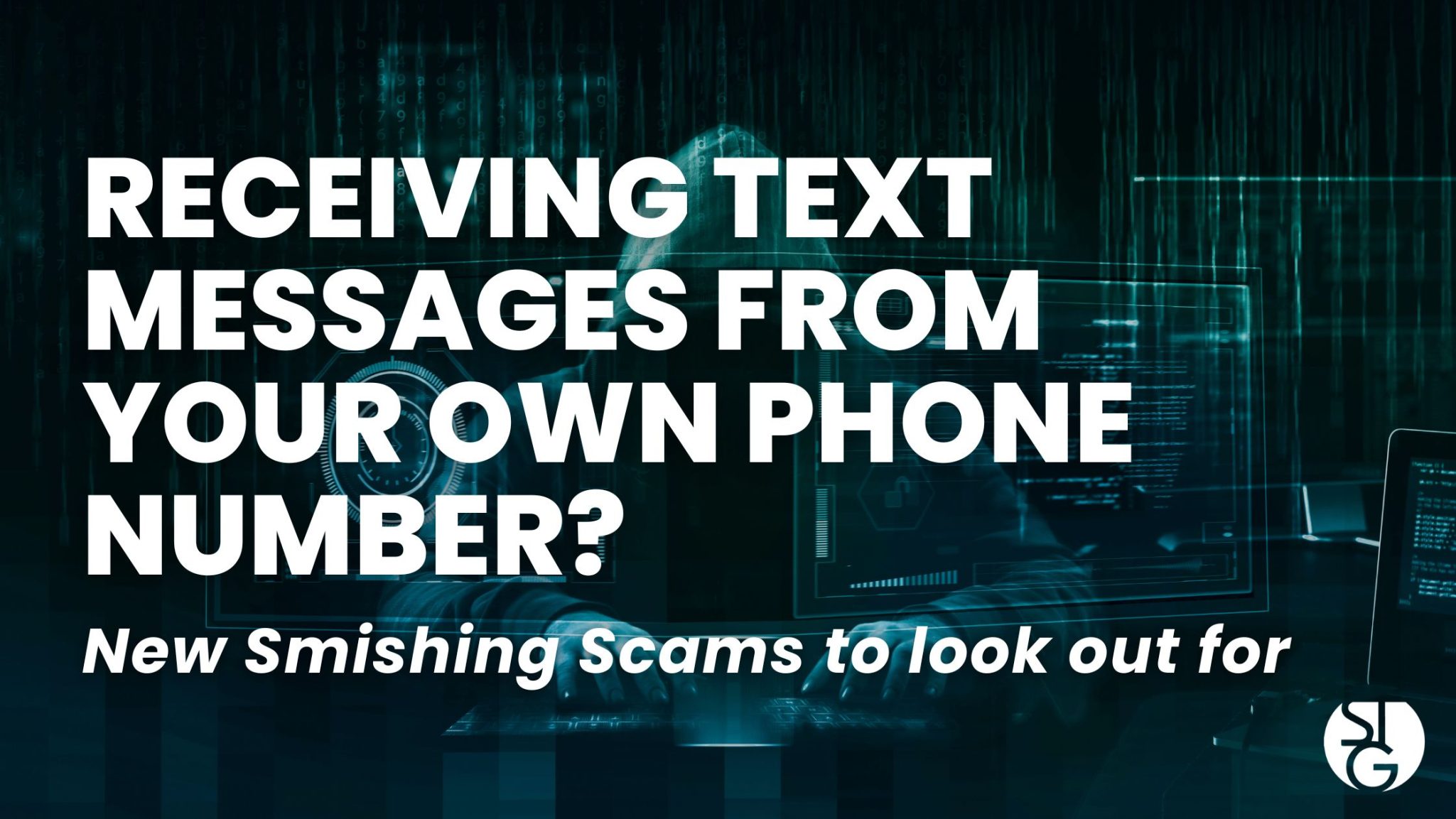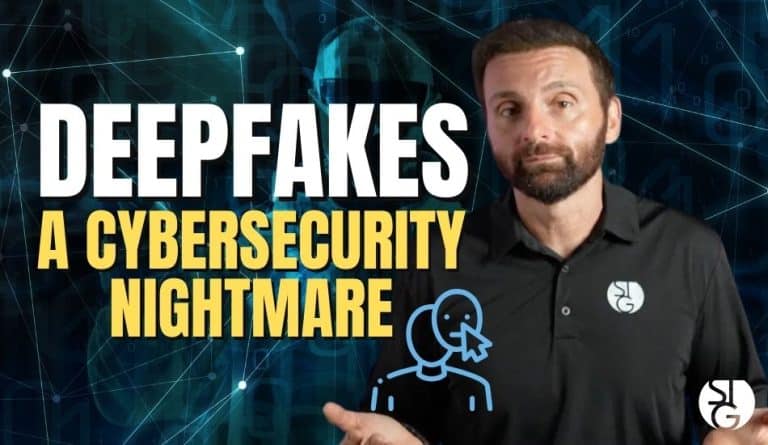Receiving messages from yourself? New smishing scams arising sending texts from your own phone number.
How many more text messages do you receive from businesses now compared to two years ago? If you’re like everyone else, it’s probably a lot more.
Businesses know that people aren’t opening emails anymore. The spam folders are full, and the email route is clogged. They advise customers to sign up for SMS notifications as a way to track their order or learn about new sales. The medical sector especially embraces this style of outreach. Doctor’s offices will send appointment reminders, pharmacy refill messages and other updates through SMS.
In some cases, these SMS messages can be useful. However, text messages aren’t only coming from stores and medical practices. The new tactic cybercriminals are embracing is sending phishing through texts.
Smishing, otherwise known as SMS phishing, is becoming a major problem to look out for.
The total number of smishing cases has rose 328% since 2020, and approximately 700% more since the beginning of 2021. Particularly now as businesses adapt data security to remote work, phishing by SMS has grown to be a major issue.
How Can I Text Myself?
If you have yet to receive a text message from your own number, expect to in the near future. This smishing fraud is quickly becoming widespread and causing a lot of uncertainty. Scammers are benefiting from this growing uncertainty. In the confusion, users are more likely to open a malicious link in a text than email.
Cybercriminals have the ability to make a text message appear to be coming from your own phone number. They employ smart spoofing software and VoIP connections to do so.
If you ever see a message from your own number, it is a clear indication of an SMS phishing scam. You should NOT interact at all and delete the message immediately. Some phone carriers are allowing you the option to delete and also report a scam SMS.
Common Smishing Scams to Beware of
Smishing is extremely dangerous right now because so many people are still unaware of it. They have a false sense of security. People do not expect people outside of their circle to have access to their number.
Don’t fall for that. Both legal and illegals techniques are used to gain mobile numbers. Online, advertisers can purchase a list of them. On the dark web, data breaches that reveal client information are for sale. Your information, including your mobile number, could be selling on the dark web right now and you would never know. You are more vulnerable now than ever.
It’s a fact that more than 35% of the population have no idea what smishing is.
Phishing email scams are constantly evolving. The development into SMS phishing scams was just the next step for these criminals. Making these scams are being more and more difficult to spot.
For example, there really isn’t a way to confirm the validity of the email addresses. Most people are unaware of the correct number or email they would be receiving from Amazon shipment updates. So if they are expecting a package, and the message says they are Amazon, most people wouldn’t question it.
Most links sent through SMS usually hide the URL. They will use a shortened version that is not easy to see on the phone as it is on a computer.
It’s so important to be mindful of what’s out there. Here are a few common phishing scams that you could potentially encounter in your own text message.
Messages Stating Delivery Failure
We all love receiving packages, right? This smishing scam takes advantage of our emotions by pretending to be from a reputable carrier, such as USPS or FedEx. It claims there is a delay in delivery because you need to give more information.
The message link will direct you to a form capture that collects personal information to use in identity theft scams. One strategy uses this scam to request a small fee to release your package. The website given is made by scammers to get your credit card information.
Scheduling Fake Appointments
A South Carolina neighborhood fell victim to this scam. In the area, AT&T fiber internet cables had just been installed. After the installation, AT&T conducted a consumer drive to solicit new people to sign up.
During this time, one homeowner reported receiving a text message around the same time. The claim was that AT&T was asking them when he wanted the fiber internet installed. The address they provided was incorrect which is what made him suspicious. He then was asked to send personal information by the scammer.
Get Your Free Gift
A recent SMS message with no sender information will say something along the lines of “Thank you for your recent payment, here’s a free gift.” They will include a link, hoping you think that’s how you get your prize.
This is becoming a common scam being reported on the internet. Scammers use time periods most people pay a bill or buy something as the opportunity to send these messages. You’re more likely to click on a message if you think its from a recent company you bought something from. Additionally you may be persuaded by the promise of a free gift. Remember, everything has a price.
Does Your Mobile Device Have the Security it Needs?
Scams involving smishing are extremely cunning and can quickly infect your device with malware. Do you have the necessary security measures in place (such as DNS filtering and mobile antivirus)?
Give us a call if not. We can assist!
Dark Web Scan
If you want to know if your businesses information is being sold on the Dark Web, email us at [email protected]! We would be happy to run a complimentary Dark Web Scan to put your mind at ease.
If you’d like to find out more about what’s new in the tech world, make sure to follow our blog!
Click here to schedule a free 15-minute meeting with Stan Kats, our Founder, and Chief Technologist.
STG IT Consulting Group proudly provides IT Service in Greater Los Angeles and the surrounding areas for all of your IT needs.





